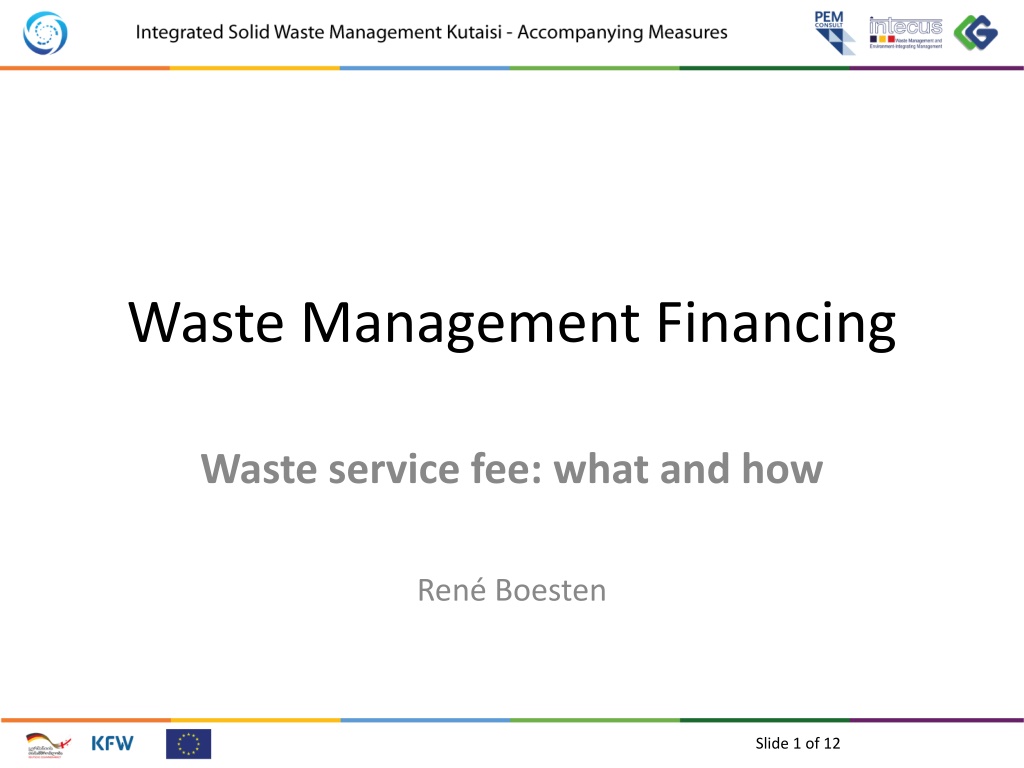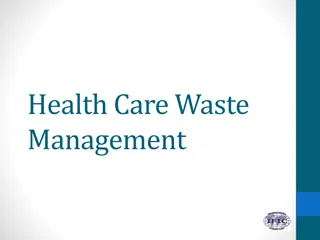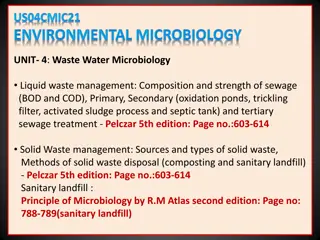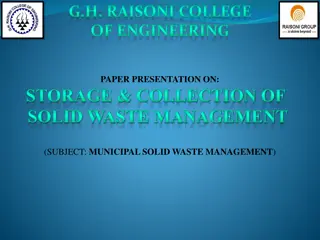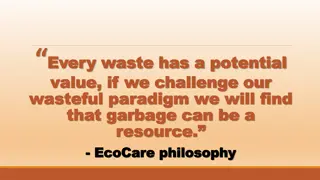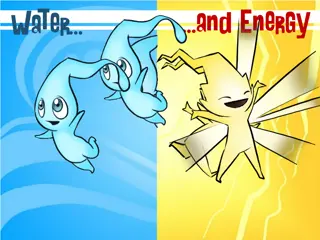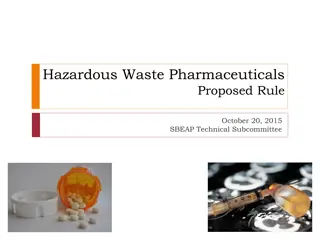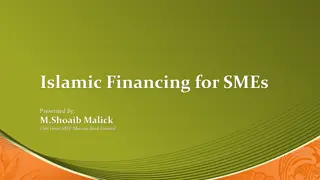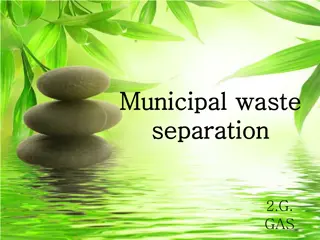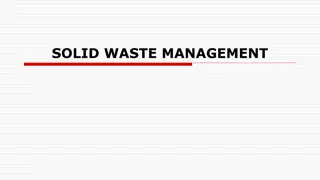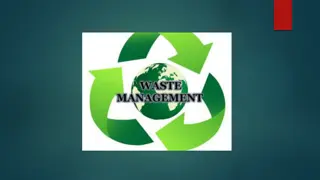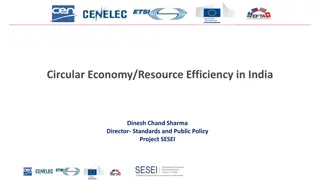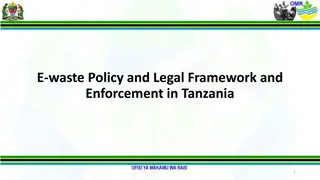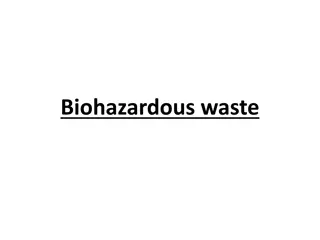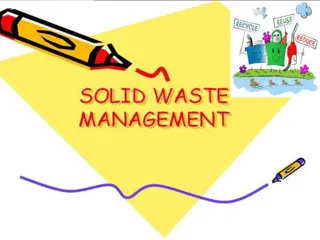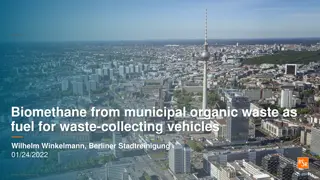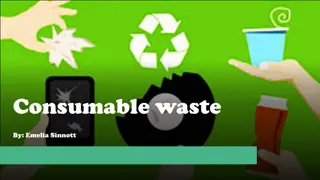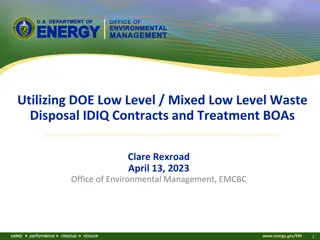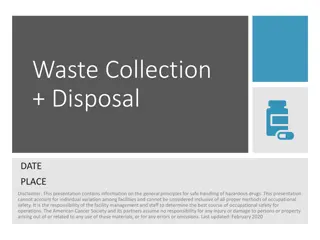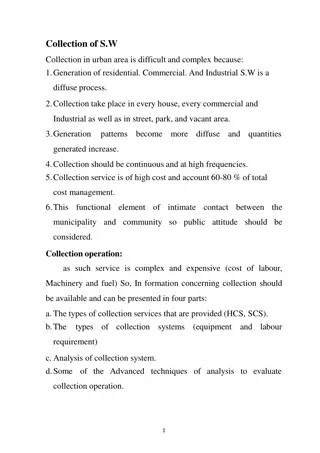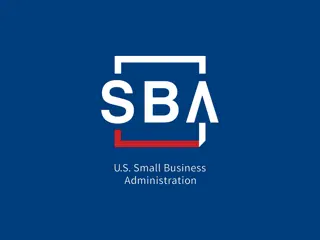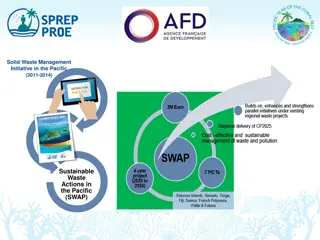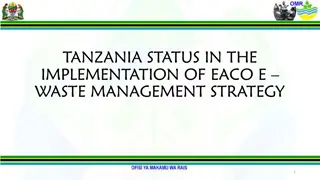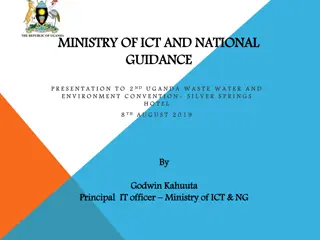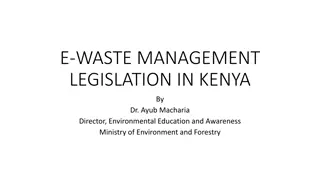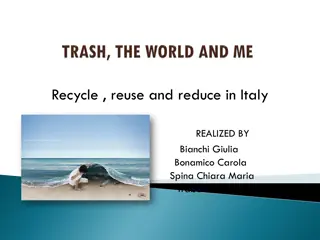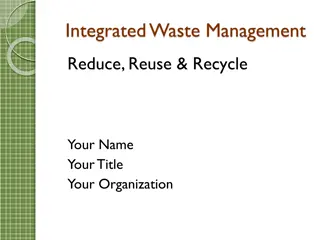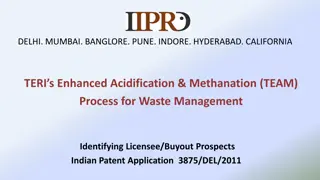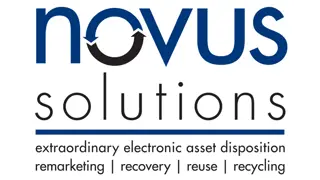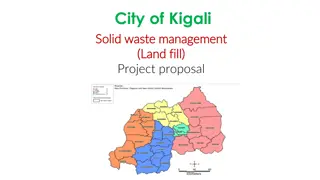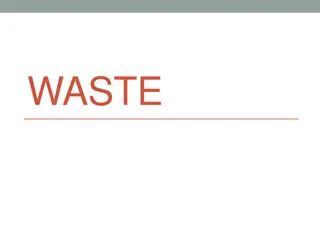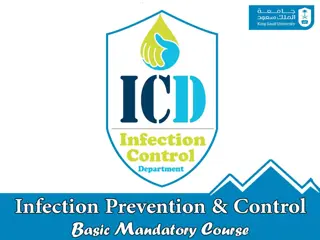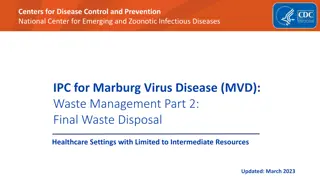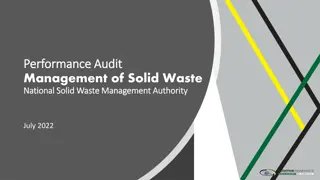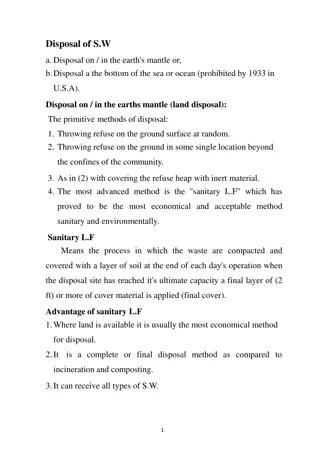Waste Management Financing Overview
Explore the intricacies of waste service fees, robust financing systems, determining waste service costs, and establishing a waste service fee. Learn about the Polluter Pays Principle and how waste management funding is essential for sustainable practices. Discover strategies to ensure fee collection even from reluctant payers.
Download Presentation

Please find below an Image/Link to download the presentation.
The content on the website is provided AS IS for your information and personal use only. It may not be sold, licensed, or shared on other websites without obtaining consent from the author. Download presentation by click this link. If you encounter any issues during the download, it is possible that the publisher has removed the file from their server.
E N D
Presentation Transcript
Waste Management Financing Waste service fee: what and how Ren Boesten Slide 1 of 12
Agenda Welcome and introduction to the program Robust financing systems: what does it mean and why is it needed? How to determine the waste services costs? What are waste services? What are the key cost elements of these services? How are the costs registered in the charts of accounts? Lunch break / Refreshments Chart of accounts: an example of cost registration and planning Questions and answers Introducing a waste service fee: the Tbilisi practice How to determine the waste service fee? Baseline: the chart of accounts The role of the municipal council Affordability Exemptions, non-payers, enforcement Cost saving options Questions and answers Slide 2 of 12
Agenda Summary of day one Questions and answers Introducing a waste service fee: Project Municipalities Outsourcing waste services and contracting How to determine services and costs Some points of attention for tendering Sources of external funding / subsidies Lunch break / Refreshments Introducing the waste service fee: how to tell it to the public? What information is needed? How to present this information? Questions and answers Slide 3 of 12
Question: How can we collect the waste services fee, also from people that don t want to pay or can t pay? Answer: that is what these 2 days are about Slide 4 of 12
1 big question, many small questions: Why do people need to pay? What is a waste service fee? How do we determine the fee? How do we justify the fee? Slide 5 of 12
Why do people need to pay? Waste collection and disposal costs money Paid via a service fee or via general taxes Waste service fee: Polluter Pays Principle: the costs for polluting (waste generation) are to be paid by the one who causes the pollution If the polluter has to pay, this may push the polluter to prevent and reduce Slide 6 of 12
Who should pay? Residents, households Shops, offices, restaurants, hotels (also Airbnb!), industries, farms etc Institutions like schools, hospitals, the municipality For each group, a different systems can be used: a general fee, contracts with fee per collection/weight Slide 7 of 12
Who can be exempted? People below the social minimum Anyone the municipal council wants to exempt Here we need your input If exempted: who pays for them? Slide 8 of 12
What is a waste service fee? It is not a tax Meaning: the income of the fee must be used to pay the service The total income may not be higher than the total costs Slide 9 of 12
What is a waste service fee? The fee covers the costs: Collection, cleaning of public areas, transport, disposal, public awareness and information, overhead, control and enforcement .. The fee is determined by the mayor and approved by the municipal council The municipal council controls afterwards Slide 10 of 12
How to determine the fee? Total costs Total waste generators How many generators has a household, a hotel, a hospital, the municipality????? Decisions need to be made Slide 11 of 12
How do we justify the fee? Is a service provided? Are the total costs calculated and checked ? Are there specific rules for shops etc? Are there specific rules for exemptions, including covering the costs of the exemptions? Is there a decent cost control system? Can it be explained to the public? Slide 12 of 12
Legal requirements on municipal SWM charges Responsibilities of the Municipal Councils (Sakrebulo) include the following: Determination and adjustment of municipal waste charges for residential, commercial & institutional waste producers Development and application of the municipal waste charge calculation methodology Development and implementation of billing and collection procedures Slide 13 of 12
Waste fee??? A legal obligation, a burden. Are there also benefits?? If services are contracted to a company, the costs must be known If costs are known, savings can be determined If people pay, they act more responsible Well, some say that this also works for waste, some say it doesn t. Beware of EPR! Slide 14 of 12
Purpose of this workshop: Get a detailed understanding of present and future costs of waste management Understand the methods for calculation of costs, allocation of costs Understand the different methods for charging the fee and collecting the fee Understand the benefits of cost control Know the basis for negotiation with third parties Be pragmatic in the application of the fee Slide 15 of 12
What to do after this workshop: Set up a working group to discuss and decide on the methods and application (e.g. systems for hotels, for shops, for exemptions) Slide 16 of 12
